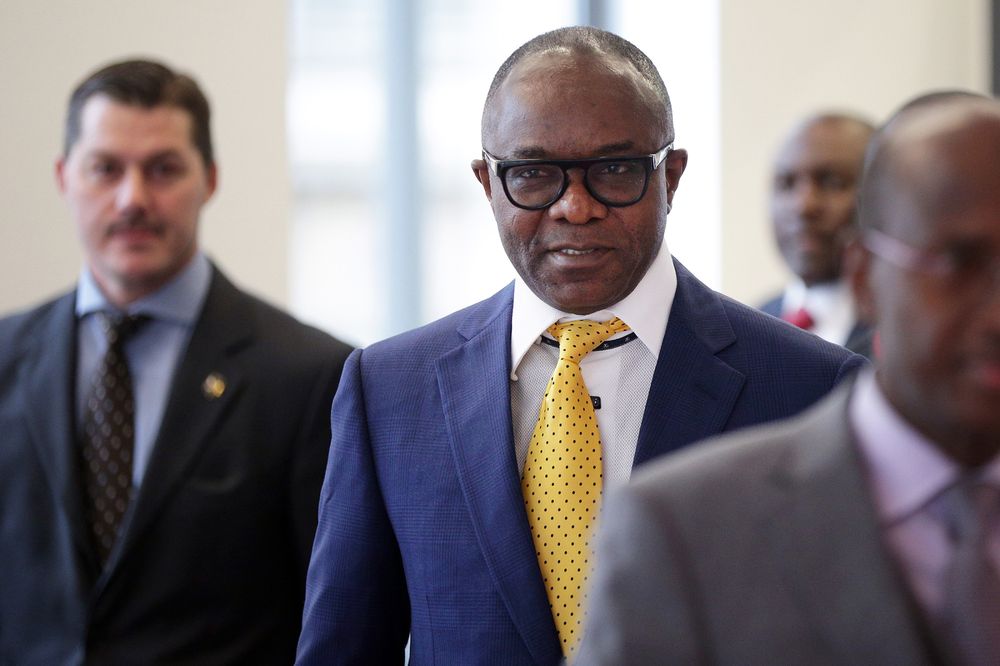- Nigeria, Niger Republic Sign MoU on Refinery, Pipeline Projects
The Federal Government on Tuesday signed a Memorandum of Understanding with Niger Republic to build a hydrocarbon and pipeline refinery in Katsina State.
The Minister of State for Petroleum Resources, Ibe Kachikwu; and Nigerian Minister of Energy and Oil, Faomakoye Gado, signed the agreement on behalf of their respective countries at the new Banquet Hall of the Presidential Villa, Abuja.
President Muhammadu Buhari and President Muhamamdou Issoufou of Niger Republic witnessed the signing of the agreement.
The refinery, which is to be built in Mashi town of Katsina State, is targeting to produce between 100,000 and 150,000 barrels of crude oil per day. It is projected to create over 2,500 direct and 10,000 indirect jobs.
The duration for the completion of the modular refinery project is put at between three and four years.
At the signing of the agreement, Buhari stated that the refinery, which will be the sixth after those of Warri, Kaduna, two in Port Harcourt, and the Dangote Petrochemical and Refinery in Lekki area of Lagos, would be private sector, driven with the full support of the governments of both countries.
He gave December 2018 deadline for the submission of the technical details of the project.
The project will see the construction of a pipeline network that will supply crude oil from the Republic of Niger to the refinery.
Buhari assured all stakeholders of Nigeria’s commitment to pursue the partnership with vigour and determination.
He said, “Nigeria sees this cooperation on crude oil export from the Republic of Niger and construction of refinery facilities in Katsina State as a win-win situation for both nations.
“The initiative will not only provide a reliable market for the stranded crude from the Niger Republic, but will also provide petroleum products for Nigeria, as it aggressively pursues its aspiration on petroleum product self-sufficiency.”
Buhari said, “In addition, it is my hope that the current frontier exploration efforts in the northern part of the country (Chad Basin, Gongola Basin, Sokoto Basin, Bida Basin and Benue trough) will also result in the provision of additional hydrocarbon inflow to the corridors of the proposed pipeline and a potential refinery around Kaduna axis.
“I am happy that several productive engagements held between the Nigerian and Nigerien authorities have resulted in the positive agreements to progress with activities on this important project.”
A steering committee chaired by the Nigerian Minister of State for Petroleum Resources and the alternate chairman, the Nigerien Minister of Petroleum, will provide strategic leadership, direction and governance oversight for the project.
Also, a senior level joint technical team set to develop the implementation road map and strategy on both the refinery and pipeline projects is led by Nigeria’s Rabiu Suleiman and supported by the Director General, Hydrocarbon, Niger Republic.
Buhari added, “It is my expectation that by December 2018, this group will come up with a detailed road map and guidelines leading to actual execution of the projects.
“The detailed road map should cover the following: Bankable feasibility studies for both the refinery and pipeline projects; optimal project site, pipeline routes and details; security plan and selected consortia of investors for both the refinery and pipeline projects.”
Issoufou, on his part, said the signing of the MoU constituted an important step, which would be mutually beneficial to both countries.
He noted that both countries wanted to work together to extend their economies, adding that Africa would not develop unless it was strengthened.
Issoufou stated, “We need to expand power and integration. This MoU is important for us to strengthen cooperation between our two countries. We are working as pioneer to develop our value chain. Nigeria is the natural leader of the integration process.
“We have decided to put two strategic technical committees in place in order to achieve the objectives of the projects. In the next few years, our cooperation will be to celebrate the export of oil from Niger to Nigeria.”
Kachikwu, in his remarks, said already, several expressions of interest from prospective investors had been received.

 Billionaire Watch3 weeks ago
Billionaire Watch3 weeks ago
 Startups4 weeks ago
Startups4 weeks ago
 News4 weeks ago
News4 weeks ago
 News4 weeks ago
News4 weeks ago
 Bitcoin4 weeks ago
Bitcoin4 weeks ago
 Naira4 weeks ago
Naira4 weeks ago
 Forex3 weeks ago
Forex3 weeks ago
 Treasury Bills4 weeks ago
Treasury Bills4 weeks ago

























